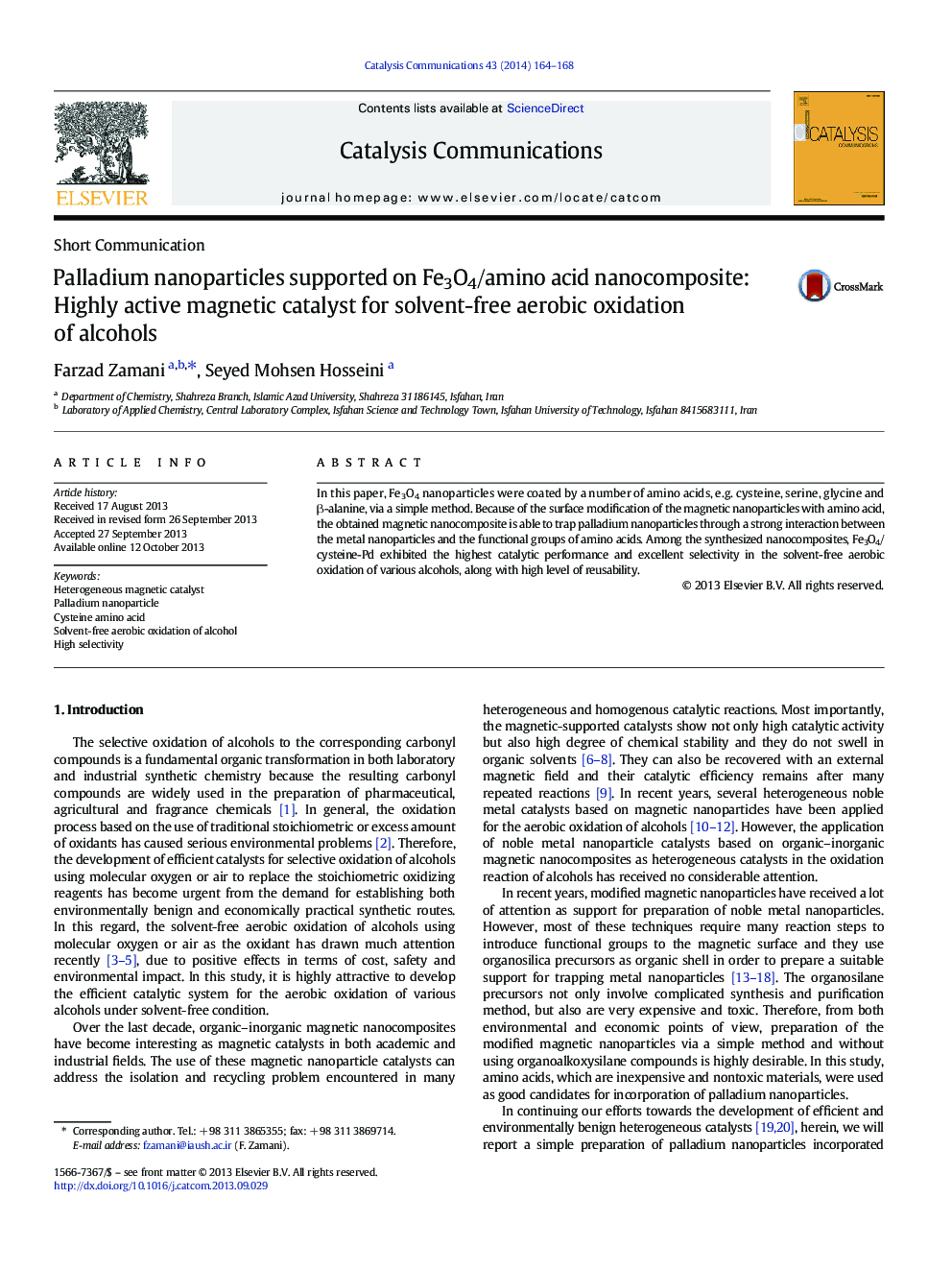| Article ID | Journal | Published Year | Pages | File Type |
|---|---|---|---|---|
| 50434 | Catalysis Communications | 2014 | 5 Pages |
•Palladium nanoparticles exhibited a strong interaction with cysteine-coated Fe3O4 nanoparticles.•This magnetic nanocomposite catalyst could be prepared by a simple method.•Different aldehydes were synthesized in high yields and selectivity under solvent-free conditions.•The magnetic catalyst showed high level of reusability.
In this paper, Fe3O4 nanoparticles were coated by a number of amino acids, e.g. cysteine, serine, glycine and β-alanine, via a simple method. Because of the surface modification of the magnetic nanoparticles with amino acid, the obtained magnetic nanocomposite is able to trap palladium nanoparticles through a strong interaction between the metal nanoparticles and the functional groups of amino acids. Among the synthesized nanocomposites, Fe3O4/cysteine-Pd exhibited the highest catalytic performance and excellent selectivity in the solvent-free aerobic oxidation of various alcohols, along with high level of reusability.
Graphical abstractA number of Fe3O4/amino acid-Pd nanocomposites were successfully prepared by a simple method. The results showed that Fe3O4/cysteine-Pd nanocomposite has the highest catalytic activity in the solvent-free aerobic oxidation of alcohols among the other synthesized nanocomposites, which is probably due to a strong interaction between Pd nanoparticles and sulfur groups in the cysteine structure.Figure optionsDownload full-size imageDownload as PowerPoint slide
